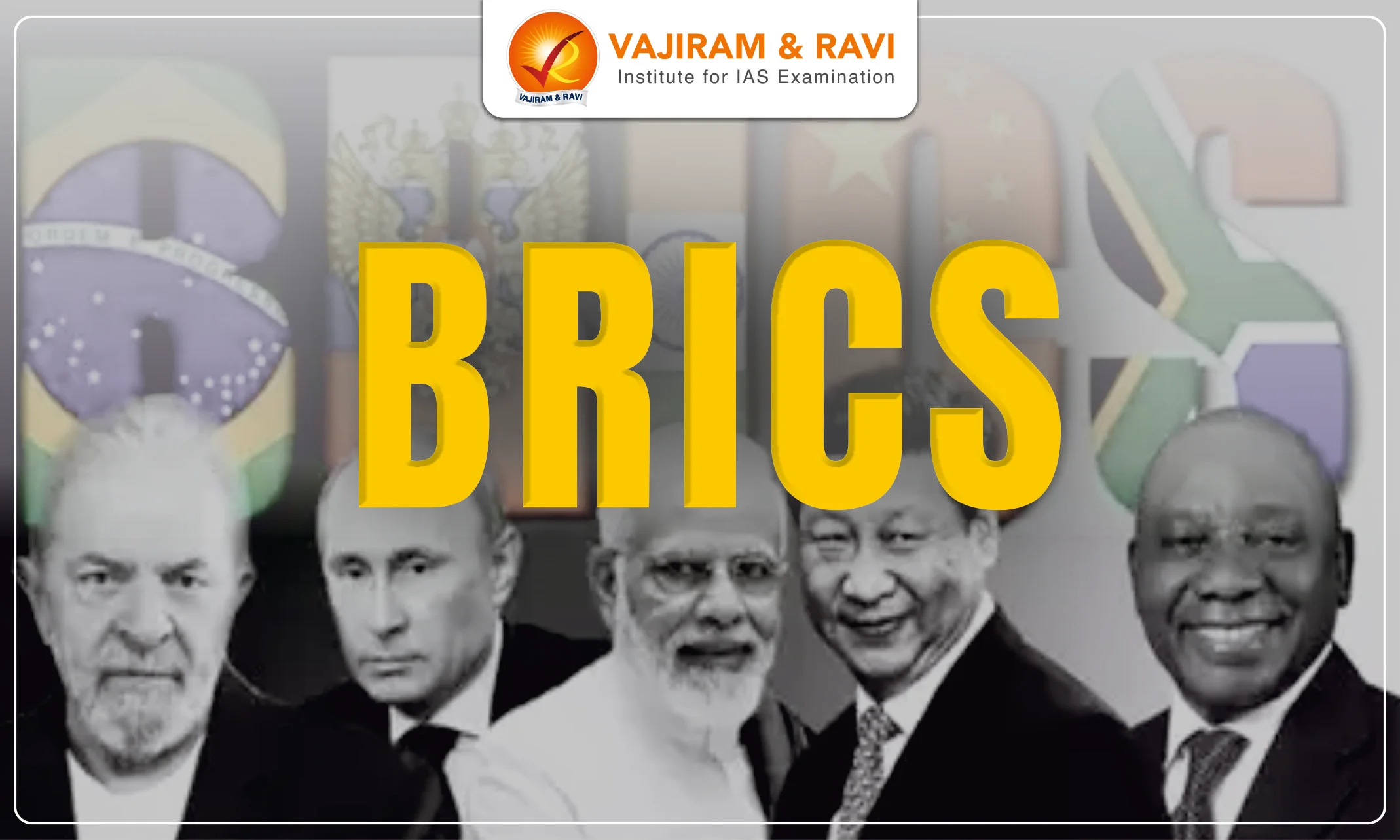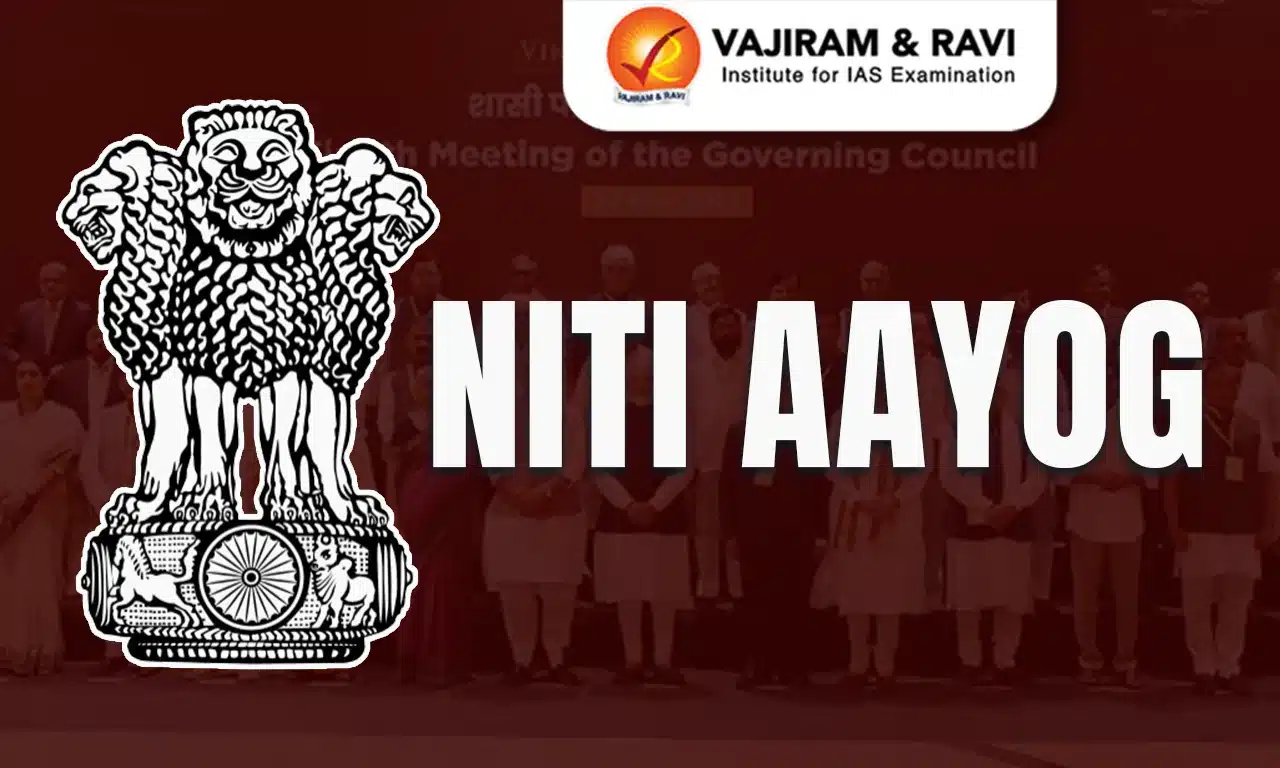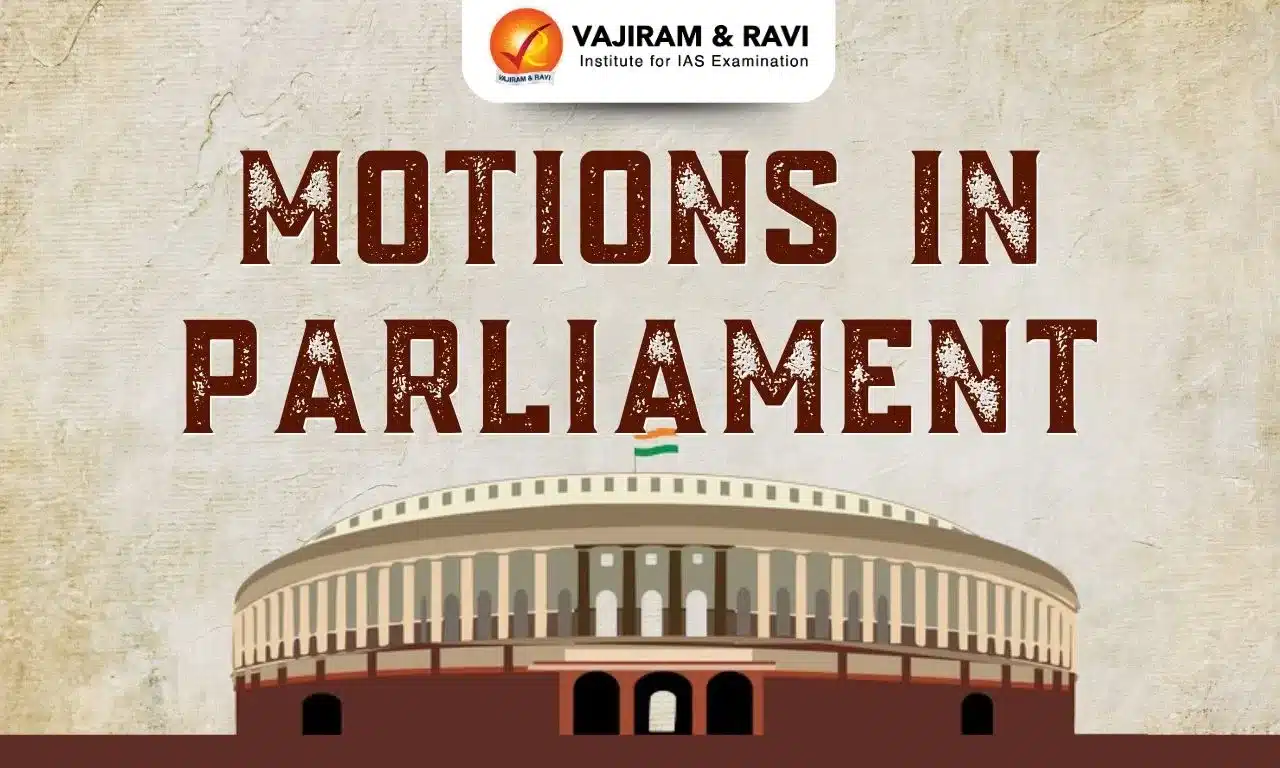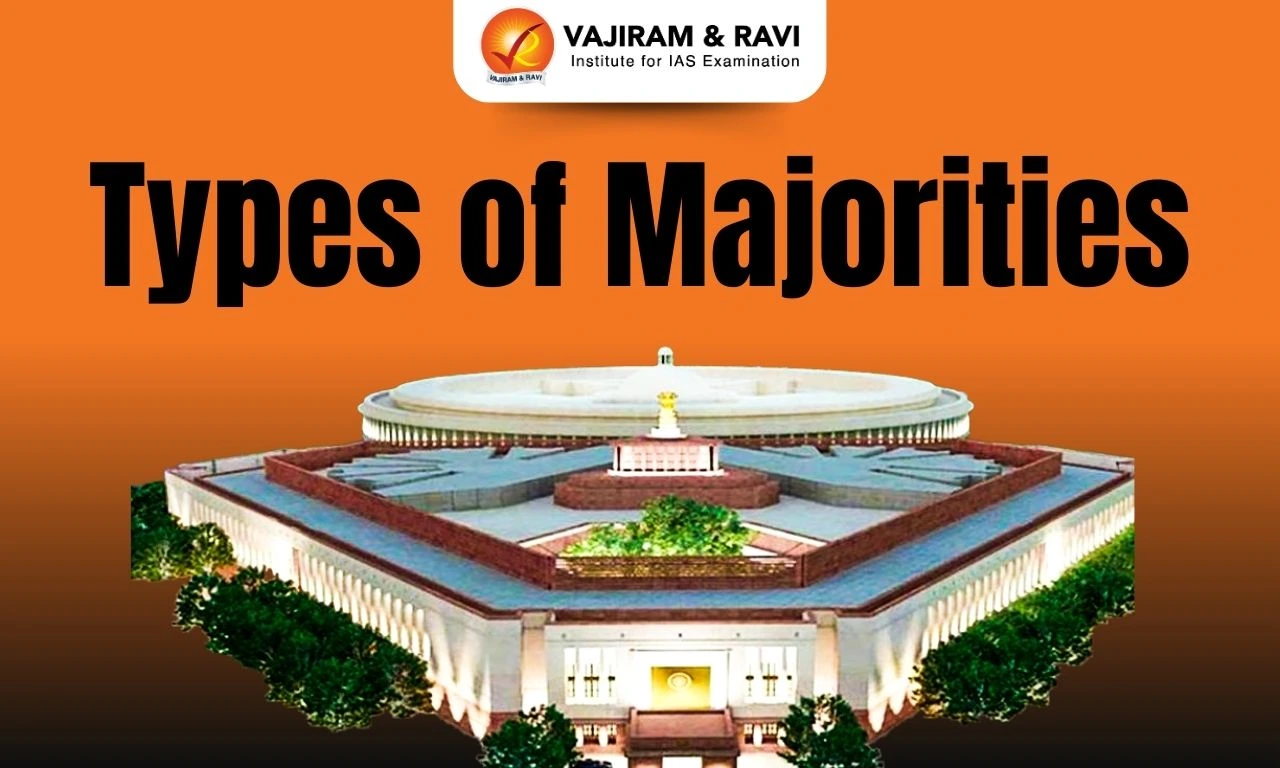In a 2001 research paper that highlighted the growth potential of Brazil, Russia, India, and China, then-Goldman Sachs chief economist Jim O'Neill introduced the acronym BRIC, which at first did not include South Africa. The BRICS group, which encompasses Brazil, Russia, India, China and South Africa, represents a quarter of the world’s economy and about 40 per cent of the world’s population and has increasingly sought to be a counterweight to the dominance of Western-led forums like the Group of 7 and the World Bank.
BRICS, primarily the grouping of emerging economies with a focus on economic matters, gained significance amid geopolitical shifts, notably after the Ukraine conflict, elevating the importance of BRICS in recent periods.
Agenda of the BRICS
The regular annual summit and deliberation of BRICS has considerably widened over the years to encompass topical global issues such as:
- International terrorism
- Climate change
- Food and energy security
- International economic and financial situation
- Reform of the Bretton Woods Institutions
- Trade protectionism and the WTO
Evolution of BRICS Summit
The grouping was first informally formed during a meeting of the leaders of BRIC (Brazil, Russia, India, and China) countries on the sidelines of the G8 Outreach Summit in St.Petersburg, Russia, in 2006. Later that year, it was formalised during the 1st BRIC Foreign Ministers' Meeting in New York.
- 2009: The first BRIC (BRICS minus South Africa) summit was held in Yekaterinburg, Russia.
- 2010: South Africa was accepted as a full member, and the group became BRICS.
- 2011: South Africa attended its first BRICS summit in China.
- 2014: The Fortaleza Declaration was adopted at the 6th BRICS Summit, and it marked the establishment of the New Development Bank (NDB).
- 2015: The Ufa Declaration of BRICS was adopted at the 7th BRICS Summit held in Ufa, Russia. It covers a range of topics, including global governance, international security, and economic cooperation.
- 2021: The 13th BRICS Summit was held under India’s Chairship (virtual summit). It was the third time that India hosted the BRICS Summit after 2012 and 2016.
- 2022: The Beijing Declaration was adopted at the 14th BRICS Summit, where it was declared that the BRICS countries support talks between Russia and Ukraine.
- Also, cooperation in the fight against COVID-19, digital transformation, resilience and stability of industrial and supply chains, and low-carbon development.
Functioning of BRICS
Relations between BRICS partners are built on the UN Charter, generally recognised principles and norms of international law, and the following principles: openness, pragmatism, solidarity, non-bloc nature, and neutrality with regard to third parties.
- In accordance with the acronym B-R-I-C-S, the members take turns serving as the forum's chairman on an annual basis.
- BRICS work is based on action plans approved during annual summits since 2010.
Initiatives of BRICS
The BRICS countries have come together to deliberate on important initiatives under the three major pillars:
Political and Security Cooperation
To enhance cooperation and dialogue on issues of global and regional security and developments in the global political space for peace, security, and prosperity. Priorities under this pillar are the reform of the multilateral system and Counterterrorism cooperation.
BRICS National Security Advisors’ meeting:
- An important component of the BRICS Political and Security Pillar of cooperation.
- Deliberations on security issues such as counter-terrorism, cyber security, peace and stability, transnational organised crime, as well as the national security of BRICS countries.
Economic and Financial Cooperation
To promote economic growth and development for mutual prosperity through the expansion of intra-BRICS cooperation in sectors such as trade, agriculture, infrastructure, small and medium enterprises, energy, finance and banking.
Contingent Reserve Arrangement (CRA):
- It is a financial mechanism to protect against global liquidity pressures.
- CRA was established in 2015 to provide financial support to member countries that face balance of payments difficulties due to short-term liquidity pressures.
- The legal basis for the Establishment was signed at Fortaleza, Brazil, in 2014.
- The CRA's total lending capacity is $100 billion.
| Country |
Capital contribution (Billion USD) |
Access to Funds (Billion USD) | Voting Rights(%) |
| China | 41 | 21 | 39.95 |
| Brazil | 18 | 18 | 18.10 |
| India | 18 | 18 | 18.10 |
| Russia | 18 | 18 | 18.10 |
| South Africa | 5 | 10 | 5.75 |
New Development Bank (NDB):
- NDB is a multilateral development bank established by BRICS with the purpose of mobilising resources for infrastructure and sustainable development projects in emerging markets and developing countries (EMDCs).
- The Agreement was signed during the BRICS Summit held in Fortaleza in 2014, and the Bank started operations in 2015.
- Headquarters: Shanghai, China, with regional offices in South Africa and Brazil.
- Apart from the founding members, Bangladesh and United Arab Emirates, Egypt, and Uruguay are the new members. The membership is open to members of the United Nations.
- The voting power of each member shall equal its subscribed shares in the capital.
- However, the share of the BRICS nations can never be less than 55% of the voting power. Also, none of the countries will have veto power.
- NDB has so far committed $32.8 billion to 96 infrastructure and sustainable development projects.
BRICS Payment System:
- The BRICS nations are working towards establishing a payment system that can serve as a substitute for the SWIFT payment system.
- It is considered an alternative to the dollar-dominated payment system to reduce the dependence on the dollar-based system.
Cultural and People-to-People Contacts
To qualitatively enrich and enhance intra-BRICS people-to-people contacts in cultural, academic, youth, sports, and business through regular exchanges, such as:
- BRICS Parliamentary Forum
- BRICS Film Festival
- BRICS Youth Summit
- BRICS Academic Forum (BAF)
India and BRICS
India is an important member of the BRICS group, and its participation in the organisation has been beneficial in many ways. Some of the key reasons why BRICS is important for India are:
-
- Strategic cooperation: BRICS offers India a key platform for global engagement on security, terrorism, climate, and trade.
- Economic benefits: As a BRICS member, India gains access to a large market of 3+ billion people, offering vast business opportunities. NDB funding supports India's development projects.
- Reform of multilateral institutions: As a member of BRICS, India has been able to work with other member countries to promote a more inclusive and equitable global order by promoting multilateral reforms.
- South-south cooperation: India, as a leading member of BRICS, has been able to use the platform to promote south-south cooperation in areas such as trade, investment, and technology transfer.
- Pillar of the New World Order: In the fifteenth BRICS Summit, after its expansion, the leaders called BRICS the pillar of the New World Order.
- Dilemma: However, the challenge before India is to choose between a China-centric or a West-centric world order or balance the two.
15th BRICS Summit 2023
The 15th BRICS Summit was held in Johannesburg, South Africa, from 22-24 August 2023.
The important highlights of the Summit are as follows:
- Theme: "BRICS and Africa: Partnership for Mutually Accelerated Growth, Sustainable Development and Inclusive Multilateralism".
- Gifts from India: The PM of India gifted Bidri Surahi, Nagaland Shawl, and Gond Paintings to BRICS leaders.
- BRICS-Africa Outreach and BRICS Plus Dialogue: India participated in the BRICS-Africa Outreach and BRICS Plus Dialogue:
- Participation: The meeting included leaders from BRICS countries along with guest countries from Africa, Asia, and Latin America.
- Invitation for International Initiatives: India extended invitations for countries to join international initiatives like the International Solar Alliance, One Sun One World One Grid, Coalition for Disaster Resilient Infrastructure, One Earth One Health, Big Cat Alliance, and Global Centre for Traditional Medicine.
- Joint Statement: Leaders express support for India's G20 Presidency.
- Support for G20 Presidencies: Backed Brazil and South Africa's G20 Presidencies in 2024 and 2025, focusing on global South representation.
- Opposition to Unilateral Measures: Condemned unilateral coercive actions, advocated inclusive multilateralism, and upheld international law.
- Global Governance Enhancement: Aimed to improve global governance through agility, efficiency, representation, and democratic accountability.
- Human Rights Cooperation: Committed to cooperating on human rights under equality and mutual respect principles within BRICS and international platforms.
- Agriculture and Food Security: Strived for fair agricultural trade, ending hunger, sustainable agriculture, and resilient practices.
- UN Reform: Supported comprehensive UN reform, including the Security Council, for enhanced democracy, effectiveness, and developing country representation.
- Peaceful Conflict Resolution: Committed to peaceful dispute resolution through dialogue and inclusiveness while recognising women's participation in peace processes.
Expansion of BRICS
More than 40 countries have expressed interest in joining BRICS, and 22 have formally asked to be admitted. Therefore, leaders of the BRICS in the 15th Summit have agreed on mechanisms for considering new members.
- First phase of expansion: The countries including Argentina, Egypt, Ethiopia, Iran, Saudi Arabia, and the UAE have received invitations to join BRICS. This new membership is set to take effect from January 1, 2024.
- Reasons for the BRICS expansion:
- China's strategic move for global influence.
- FOMO: Fear of missing out on a visible club.
- Limited options in other groups.
- Anti-western sentiment and Global South unity.
16th BRICS Summit
The 16th BRICS Summit was a landmark event in the evolution of the BRICS grouping, reflecting its growing influence and expanding membership. Held from October 22 to 24, 2024, the summit focused on strengthening multilateralism, promoting equitable global development, and enhancing security cooperation among major emerging economies.
- 16th BRICS Summit Theme: "Strengthening Multilateralism for Just Global Development and Security" . This marked the first summit featuring the expanded membership, with Egypt, Ethiopia, Iran, and the United Arab Emirates participating as full members following their accession at the 15th summit.
- 16th BRICS Summit Location: The summit took place in Kazan, Russia, a culturally diverse city recognized as Russia’s third capital. Kazan was chosen for its symbolic representation of Russia’s multicultural identity and its strategic importance.
- In January 2025, Indonesia joined the BRICS as a full member, while Belarus, Bolivia, Kazakhstan, Cuba, Malaysia, Nigeria, Thailand, Uganda and Uzbekistan inducted as partner countries of the BRICS.
Challenges of BRICS Grouping
- Overlap with other groupings: There is a parallel grouping of democracies known as IBSA (India, Brazil, and South Africa), which can lead to overlap in mandates and pose a challenge for BRICS to manage
- Economic slowdown and trade disputes: The ongoing economic slowdown and trade disputes among member states can impact the group's ability to achieve its objectives.
- Geopolitical tensions: The BRICS countries have different geopolitical interests and have been involved in regional conflicts and disputes. For example, China's BRI, 'string of pearls’, and developments at the Indo-China border have raised tensions with India.
- The dominance of three countries: The overwhelming influence of Russia, India and Chinacould potentially hinder the ability of other members, such as Brazil and South Africa, to have a meaningful impact on the group's decisions and direction.
- Paradox of BRICS: Despite several achievements, it began to lose its sparkle. The group may have lost its mojo, but numerous nations want to be admitted, thus showing the paradox of BRICS.
- BRICS Currency and De-Dollarization:
- In the 15th Summit of BRICS, Brazil's President proposed the creation of a common currency for BRICS nations to reduce vulnerability to dollar exchange rate fluctuations.
- Difference of opinion: While Brazil sees a common currency as a means of reducing vulnerabilities and increasing payment options, other BRICS leaders have varying opinions.
- Challenges of a BRICS currency include the need for banking and fiscal unions, macroeconomic convergence, and trade imbalances.
- De-dollarization would require numerous global entities to independently adopt other currencies.
BRICS UPSC PYQs
Q1. Consider the following statements with regard to BRICS :
- 16th BRICS Summit was held under the Chairship of Russia in Kazan.
- Indonesia has become a full member of BRICS.
- The theme of the 16th BRICS Summit was Strengthening Multiculturalism for Just Global Development and Security.
Which of the statements given above is/are correct?
a) 1 and 2
b) 2 and 3
c) 1 and 3
d) 1 only
Last updated on March, 2026
→ UPSC Notification 2026 is now out on the official website at upsconline.nic.in.
→ UPSC IFoS Notification 2026 is now out on the official website at upsconline.nic.in.
→ UPSC Calendar 2026 has been released.
→ UPSC Final Result 2025 is expected to be released soon.
→ Check out the latest UPSC Syllabus 2026 here.
→ Join Vajiram & Ravi’s Interview Guidance Programme for expert help to crack your final UPSC stage.
→ UPSC Mains Result 2025 is now out.
→ UPSC Prelims 2026 will be conducted on 24th May, 2026 & UPSC Mains 2026 will be conducted on 21st August 2026.
→ The UPSC Selection Process is of 3 stages-Prelims, Mains and Interview.
→ Prepare effectively with Vajiram & Ravi’s UPSC Prelims Test Series 2026 featuring full-length mock tests, detailed solutions, and performance analysis.
→ Enroll in Vajiram & Ravi’s UPSC Mains Test Series 2026 for structured answer writing practice, expert evaluation, and exam-oriented feedback.
→ Join Vajiram & Ravi’s Best UPSC Mentorship Program for personalized guidance, strategy planning, and one-to-one support from experienced mentors.
→ Check UPSC Marksheet 2024 Here.
→ UPSC Toppers List 2024 is released now. Shakti Dubey is UPSC AIR 1 2024 Topper.
→ Also check Best UPSC Coaching in India
BRICS FAQs
Q1. Who is the first President of the New Development Bank?+
Q2. How many times has India hosted the BRICS summit?+
Q3. What is BRICS' vision for global governance reform?+
Q4. How has BRICS delivered on people-to-people contact?+
Q5. Why is BRICS significant?+














